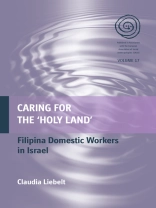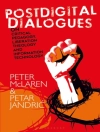In Israel, as in numerous countries of the global North, Filipina women have been recruited in large numbers for domestic work, typically as live-in caregivers for the elderly. The case of Israel is unique in that the country has a special significance as the ‘Holy Land’ for the predominantly devout Christian Filipina women and is at the center of an often violent conflict, which affects Filipinos in many ways. In the literature, migrant domestic workers are often described as being subject to racial discrimination, labour exploitation and exclusion from mainstream society. Here, the author provides a more nuanced account and shows how Filipina caregivers in Israel have succeeded in creating their own collective spaces, as well as negotiating rights and belonging. While maintaining transnational ties and engaging in border-crossing journeys, these women seek to fulfill their dreams of a better life. During this process, new socialities and subjectivities emerge that point to a form of global citizenship in the making, consisting of greater social, economic and political rights within a highly gendered and racialized global economy.
Tabla de materias
List of Photographs and Maps
Preface
List of Abbreviations
Introduction
Chapter 1. The Israeli Migration Regime: on Foreign Workers and Migrants
Chapter 2. Transnational Female Lives
Chapter 3. Caring for the ‘Holy Land’
Chapter 4. On Weekends, together: the Making and Unmaking of a Filipino Community
Chapter 5. Feeling Manila, Living in Hiding and Appropriating the Black Part of the ‘White City’: Filipinos in Tel Aviv
Chapter 6. Global Dreaming
Chapter 7. Conclusion
Glossary
Bibliography
Index
Sobre el autor
Claudia Liebelt is Lecturer of Social Anthropology at the University of Bayreuth (Germany). She has published on gender, migration and the global economy of care. She has done research in Israel and the Philippines over the past seven years.












